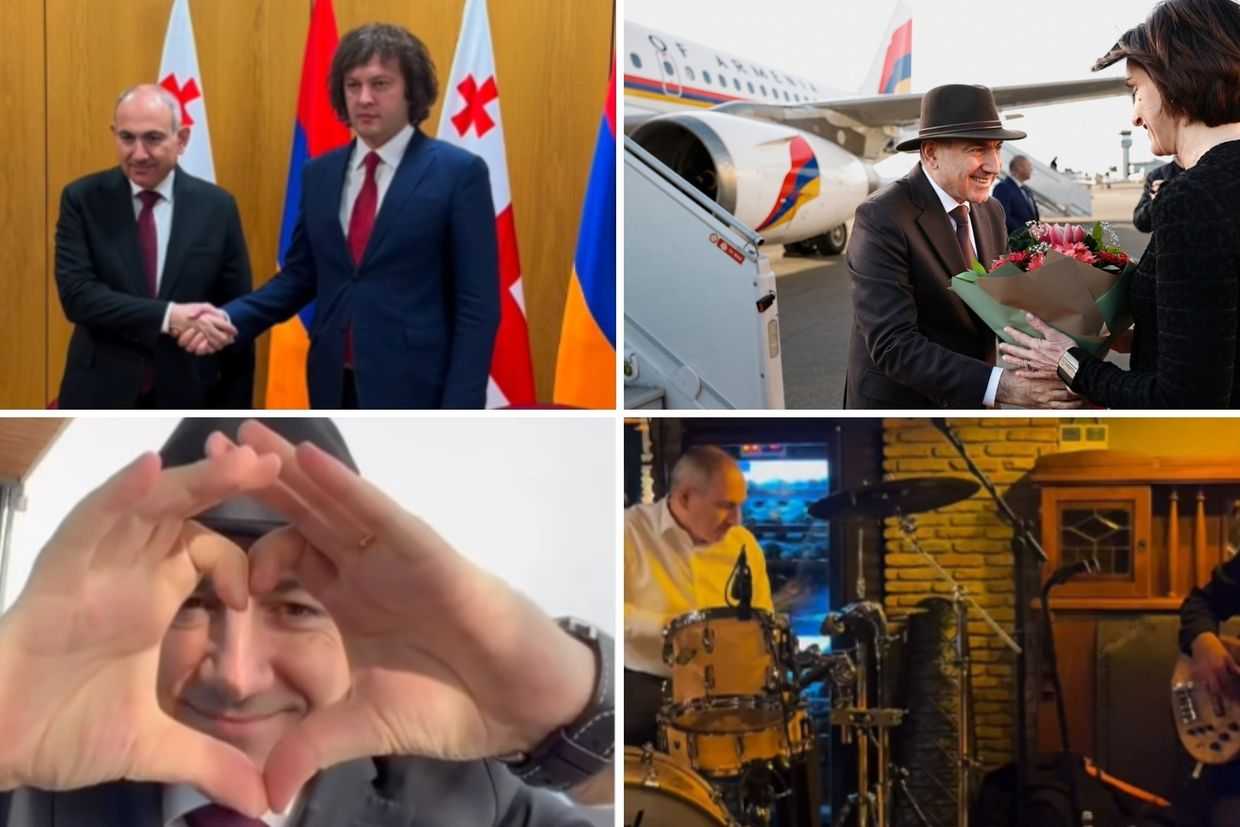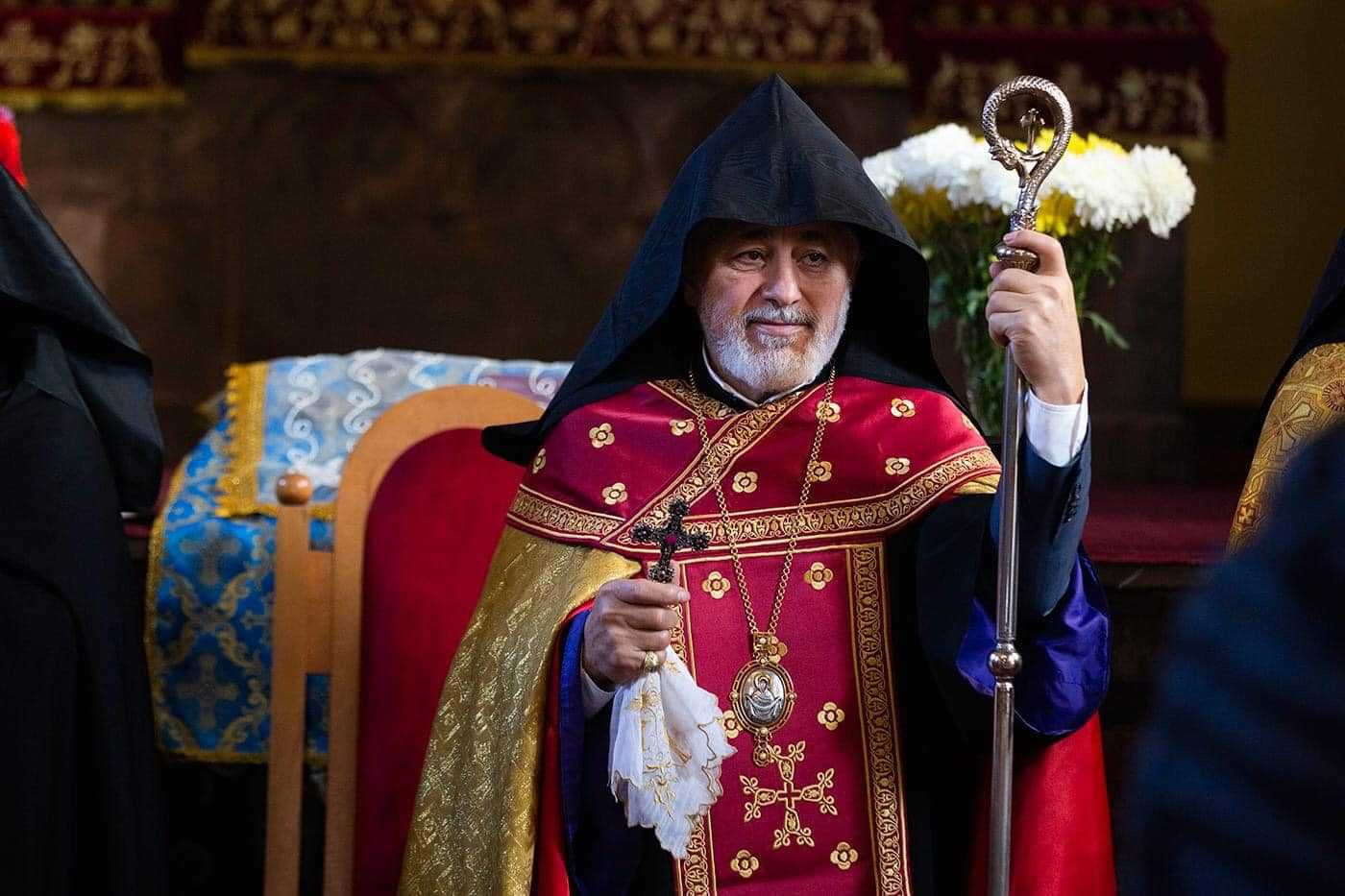
Armenian Prime Minister Nikol Pashinyan has accused Azerbaijani President Ilham Aliyev of trying to generate new territorial claims against the country, calling it a ‘serious blow to the peace process’.
During a meeting of the ruling Civil Contract party in the town of Gavar in the eastern Gegharkunik Province on Saturday, Pashinyan stated that Armenia and Azerbaijan had already agreed to delimit their borders based on the Alma-Ata Protocol.
Most former Soviet Republics, including Armenia and Azerbaijan, agreed in the 1991 protocol to recognise each other’s then–Soviet borders.
Pashinyan was responding to statements made by Aliyev on 10 January, in which the Azerbaijani president asserted that Yerevan’s insistence on using a 1975 Soviet map, apparently the last to be created prior to the USSR’s dissolution, was something ‘we can never agree to’.
He went on to claim that in prior decades, large swathes of land, including Armenia’s southern Syunik Province and the Armenian capital Yerevan, had been handed over to Armenia from Azerbaijan, which he called a ‘grave historical crime’.
He said this was why Azerbaijan ‘strongly objected to’ the use of the 1975 map, stating that either earlier maps should be used or ‘we should not base our work on any map at all.’
Aliyev also said that signing a peace agreement should not be tied to the delimitation process, citing his country’s long demarcation processes with Russia and Georgia, the latter of which he said ‘only 70%’ had been ‘identified and confirmed’.
‘If we mix these two topics, then the peace agreement will be delayed, maybe to 30, 50 years from now. We believe that a peace agreement should be signed, the sooner, the better’, he said.
Aliyev also demanded the ‘unconditional’ return of four Azerbaijani border villages which have been under Armenian control for decades.
Following the dissolution of the Soviet Union and the outbreak of the First Nagorno-Karabakh War in the early 1990s, several areas of both Armenia and Azerbaijan along their border fell under the control of the opposing side.
In response to Aliyev’s demand, Pashinyan appeared to agree, stating that there should be no occupied territories on either side, but that this ‘cannot be implemented without a mutually agreed upon map’.
‘How can we determine whether this area is in the territory of Armenia or Azerbaijan? There is a way to do this, to rely on the Alma-Ata Declaration of 1991 and the de jure maps expressing its provisions and go, look at the reality on the ground, and match the reality to the maps’, he said.
Pashinyan concluded by saying he feared Azerbaijan was attempting to create grounds for future wars.
‘Sometimes, when getting acquainted with Azerbaijan’s proposals, we get the impression that an attempt is being made to create a document that would legitimise future wars. This is beyond logic.’
A corridor to Nakhchivan
Pashinyan also criticised Aliyev’s comments about the ‘Zangezur corridor’, a proposed corridor that would connect western Azerbaijan to its exclave of Nakhchivan through Armenia’s southern Syunik Province.
He said that Armenia was not opposed to establishing roads connecting western Azerbaijan and its exclave, but noted that Armenia would provide Azerbaijan with the road ‘on the same condition that Iran provides that connection’ — referring to a highway and railway Azerbaijan is building through Iranian territory to Nakhchivan.
The establishment of a road connecting western Azerbaijan to Nakhchivan has been a point of contention in the Armenia–Azerbaijan peace talks since the end of the Second Nagorno-Karabakh War in November 2020.
Azerbaijan cites the ceasefire agreement as saying that the road should fall under Russian control, while Armenia maintains that the road should be overseen by the Armenian authorities.
The agreement stipulates that Armenia ‘shall guarantee the safety of transport communication between the western regions of the Republic of Azerbaijan and the Nakhchivan Autonomous Republic’, and that ‘control over transport communication shall be exercised by the Border Guard Service bodies of the FSS of Russia.’
‘It is not written anywhere that Russia should provide communication security in any territory of Armenia. On the contrary, it is written that Armenia guarantees security in its territory, and it is natural who else should ensure it’, said Pashinyan.
Pashinyan also responded to comments Aliyev had made about Armenia’s weapons imports.
‘He questions the territorial integrity of Armenia, and on the other hand, he says that the Armenian army buys weapons from France and India. What is the logic here? Is it Azerbaijan’s perception that Armenia should not have an army? If this is the case, it means that Armenia’s right to exist is being questioned, which is absolutely unacceptable’.









